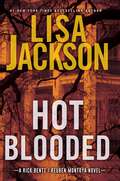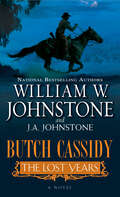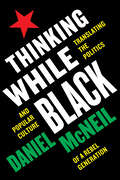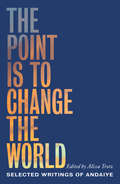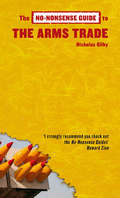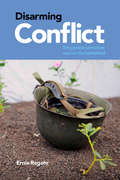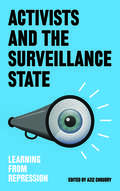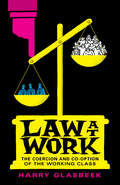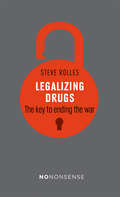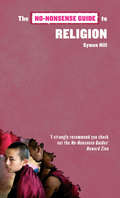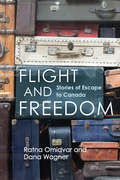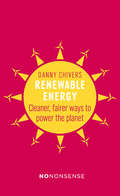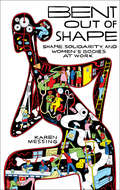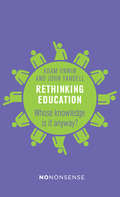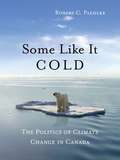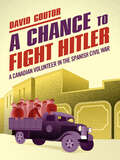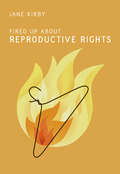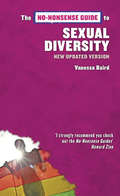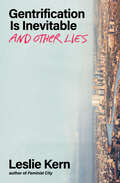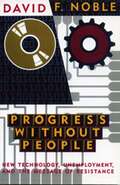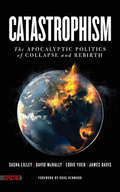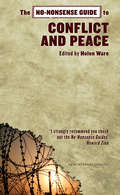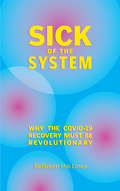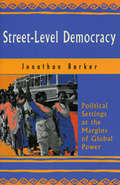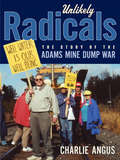- Table View
- List View
Hot Blooded (A Bentz/Montoya Novel #1)
by Lisa JacksonA cunning serial killer torments a New Orleans radio host in this thriller series debut by the #1 New York Times bestselling author of Afraid to Die. A prostitute lies strangled in a seedy French Quarter hotel room. Miles away, in a rambling plantation house on Lake Ponchartrain, late-night radio host Dr. Samantha Leeds receives a threatening crank call. But who would think to link the two?As more dead bodies turn up, Samantha's ominous caller persists, along with someone claiming to be a woman from her past—who's been dead for years. With Detective Rick Bentz convinced that the serial killer prowling the streets is somebody close to Samantha, she doesn't dare trust anyone. Especially not Ty Wheeler, her seductive new neighbor who seems to know more about her than a stranger should. Somebody has discovered Samantha's darkest secret. Somebody is convinced that lives must be sacrificed to pay for her sins. So far, the victims have been strangers. But as a cold-blooded killer grows bolder, Samantha wonders if she will be the next to die.
Butch Cassidy The Lost Years (Butch Cassidy the Lost Years #1)
by William W. Johnstone J.A. Johnstone"An entertaining story with lots of plot twists." --BooklistThe Greatest Western Writer Of The 21st Century In a small Texas town in 1950, a Pinkerton detective interrupts an old-timer's game of dominos to learn the truth about Butch Cassidy--who is still very much alive and well. In fact, he's the old-timer playing dominos. Seems that after surviving the infamous shootout in Bolivia that claimed the life of his partner the Sundance Kid, Butch returns to Texas searching for a place to call home. When he comes across a dying rancher who'd been shot by some rustlers, Butch promises to avenge him--and take over the ranch after his death. Assuming the name Jim Strickland, Butch begins a new chapter in his life. But trouble has a way of finding Butch. A corrupt railroad baron pulls him into the most dangerous train robbery he's ever attempted. But if Butch Cassidy is going to ride again, it'll have to be with a newer, and wilder, Wild Bunch. . . "Johnstone is a masterful storyteller, creating a tale that is fanciful and funny, exciting and surprisingly convincing. . .great fun." --Publishers Weekly
Thinking While Black: Translating the Politics and Popular Culture of a Rebel Generation
by Daniel McNeilThis uniquely interdisciplinary study of Black cultural critics Armond White and Paul Gilroy spans continents and decades of rebellion and revolution. Drawing on an eclectic mix of archival research, politics, film theory, and pop culture, Daniel McNeil examines two of the most celebrated and controversial Black thinkers working today. Thinking While Black takes us on a transatlantic journey through the radical movements that rocked against racism in 1970s Detroit and Birmingham, the rhythms of everyday life in 1980s London and New York, and the hype and hostility generated by Oscar-winning films like 12 Years a Slave. The lives and careers of White and Gilroy—along with creative contemporaries of the post–civil rights era such as Bob Marley, Toni Morrison, Stuart Hall, and Pauline Kael—should matter to anyone who craves deeper and fresher thinking about cultural industries, racism, nationalism, belonging, and identity.
The Point Is to Change the World: Selected Writings of Andaiye (Black Critique Ser.)
by AndaiyeRadical activist, thinker, and comrade of Walter Rodney, Andaiye was one of the Caribbean’s most important political voices. For the first time, her writings are published in one collection. Through essays, letters, and journal entries, Andaiye’s thinking on the intersections of gender, race, class, and power are powerfully articulated, Caribbean histories emerge, and stories from a life lived at the barricades are revealed. We learn about the early years of the Working Peopl’s Alliance, the meaning asnd impact of the murder of Walter Rodney and the fall of the Grenada Revolution. Throughout, we bear witness to Andaiye’s acute understanding of politics rooted in communities and the daily lives of so-called ordinary people. Featuring forewords by Clem Seecharan and Robin DG Kelley, these texts will become vital tools in our own struggles to “overcome the power relations that are embedded in every unequal facet of our lives.”
No-Nonsense Guide to the Arms Trade, 2nd edition (No-Nonsense Guides #23)
by Nicholas GilbyOne of the few up-to-date works on the whole of the arms trade, this No-Nonsense Guide explores not just the movement of weaponry across borders, but also the problematic activities that sustain the trade, such as espionage, government corruption, and shady taxpayer subsidies. This Guide reveals that despite Western governments’ preaching of the evils of the arms trade, they are the biggest exporters of weapons and they often sell them to repressive regimes throughout the world. This revised second edition uses the latest statistics and information available to provide a critical introduction to this most destructive business.
Disarming Conflict: Why Peace Cannot Be Won on the Battlefield
by Ernie RegehrWars fought over the past quarter century have been a spectacular failure. The overwhelming majority end in military stalemate and are settled at the negotiating table, with the grievances that led to the war still unresolved. In Disarming Conflict famed peace activist Ernie Regehr shows that force cannot simply override or transcend the social, political, and economic realities of conflict. War prevention, Regehr argues, is more successful when security policies address the conditions that most directly affect people’s lives and that are most instrumental in generating deep grievances and the despairing conclusion that there are no alternatives to the violence. Disarming Conflict sets out approaches, initiatives, and policies that steer away from the futility of fighting and promote non-military efforts towards “winning the peace.”
Activists and the Surveillance State: Learning from Repression
by Aziz ChoudryThe use of secret police, security agencies and informers to spy on, disrupt and undermine opposition to the dominant political and economic order has a long history. This book reflects on the surveillance, harassment and infiltration that pervades the lives of activists, organizations and movements that are labelled as ‘threats to national security’. Activists and scholars from the UK, South Africa, Canada, the US, Australia and Aotearoa/New Zealand expose disturbing stories of political policing to question what lies beneath state surveillance. Problematizing the social amnesia that exists within progressive political networks and supposed liberal democracies, Activists and the Surveillance State shows that ultimately, movements can learn from their own repression, developing a critical and complex understanding of the nature of states, capital and democracy today that can inform the struggles of tomorrow.
Law at Work: The Coercion and Co-option of the Working Class
by Harry GlasbeekIn a series of illuminating essays, the renowned Harry Glasbeek unpacks how law has been used to ensure that workers' aspirations are kept in check. Law at Work uncovers how the legal system, through its structures and mechanisms, legitimizes and reinforces the exploitation of workers. Using historic and contemporary examples, Glasbeek illustrates how conscious manipulations of law are part and parcel of how law protects capitalists at the expense of workers. He proves how the very laws designed to safeguard rights and freedoms often act as invisible shackles, compelling readers to reflect on their own struggles as they navigate a world where the legal system fails to serve their interests. These manipulations are made to look innocent because the underlying structures and ideology which give rise to specific rules are not challenged or challengeable. This thought-provoking book is an indispensable resource for those seeking to understand the hidden dynamics of worker oppression, empowering readers to question prevailing narratives and envision a future where the law truly serves the interests of all.
Legalizing Drugs: The key to ending the war (No-Nonsense Guides #3)
by Steve RollesThe question is no longer if we should end the war on drugs but how we do it. This No-Nonsense Guide counts the human and financial cost of fifty years of drug war – and proceeds to outline a better way, looking at where drug law reform is already working, how to overcome the obstacles to reform, and what a post-drug war world might look like.
No-Nonsense Guide to Religion (No-Nonsense Guides #20)
by Symon Hill“Religion” is a term that the media often use without any clarification. But it is a loaded word that encompasses hundreds of different beliefs. Religion can be seen as a source of war and peace, love and hate, dialogue and narrow-mindedness. The globalization of communications has raised awareness of religious conversion, with more people than ever before belonging to a different religious community than their parents. The No-Nonsense Guide to Religion considers how religion has shaped our culture, and how our culture is shaping religion today.
Flight and Freedom: Stories of Escape to Canada
by Ratna Omidvar Dana WagnerThe global number of people currently displaced from their home country—more than 50 million—is higher than at any time since World War II. Yet in recent years Canada has deported, denied, and diverted countless refugees. Is Canada a safe haven for refugees or a closed door? In Flight and Freedom, Ratna Omidvar and Dana Wagner present a collection of thirty astonishing interviews with refugees, their descendants, or their loved ones to document their extraordinary, and sometimes harrowing, journeys of flight. The stories span two centuries of refugee experiences in Canada: from the War of 1812—where an escaped slave and her infant daughter flee the United States to start a new life in Halifax—to the War in Afghanistan—where asylum seekers collide with state scrutiny and face the challenges of resettlement.
Renewable Energy: Cleaner, fairer ways to power the planet (No-Nonsense Guides #35)
by Danny ChiversFew people doubt the threat of climate change and the urgent need to conquer fossil fuel addiction. But can renewable sources of energy ever be sufficient to provide modern societies with a decent quality of life? This book is clear. They can. And it outlines the strategies to break the barriers to a 100% renewable world. Danny Chivers presents a compelling introduction to renewable technologies for non-technical readers (solar, wind, hydro, geothermal and ambient heat, wave and tidal, fuel crops, and energy from waste) and a roadmap to powering the world, not just sustainably, but democratically.
Bent out of Shape: Shame, Solidarity, and Women's Bodies at Work
by Karen MessingAward-winning ergonomist Karen Messing is talking with women—women who wire circuit boards, sew clothes, clean toilets, drive forklifts, care for children, serve food, run labs. What she finds is a workforce in harm’s way, choked into silence, whose physical and mental health invariably comes in second place: underestimated, underrepresented, understudied, underpaid. Should workplaces treat all bodies the same? With confidence, empathy, and humour, Messing navigates the minefield that is naming sex and biology on the job, refusing to play into stereotypes or play down the lived experiences of women. Her findings leap beyond thermostat settings and adjustable chairs and into candid, deeply reported storytelling that follows in the muckraking tradition of social critic Barbara Ehrenreich. Messing’s questions are vexing and her demands are bold: we need to dare to direct attention to women’s bodies, champion solidarity, stamp out shame, and transform the workplace—a task that turns out to be as scientific as it is political.
Rethinking Education: Whose Knowledge Is It Anyway? (No-Nonsense Guides #38)
by Adam Unwin John YandellWhat is knowledge? Who decides what is important? Who owns it? These key questions are central themes in this accessible book that aims to change perceptions and the understanding of education. Using historical and contemporary examples the authors examine the motivations, conflicts, and contradictions in education. Breaking down the structures, forces, and technologies involved in education they chart an alternative approach.
Some Like It Cold: The Politics of Climate Change in Canada
by Robert C. PaehlkeSome Like It Cold plunges headlong into the political conundrum of Canada’s climatechange debate. Focusing on the past responses of both Liberal and Conservative governmentsto the looming crisis—ranging from negligence to complicity and connivance—Paehlke illuminatesthe issues surrounding compliance with global regulations such as Kyoto, includingthe dilemma of tar sands development. But he also lays out crucial political steps that could, if taken, lead towards a solution. While he presents a potentially positive projection for the future, Paehlke is not afraid topoint a finger at Canada’s fractured and flawed democracy—demonstrating that the country’sambivalence is our biggest hindrance to joining the international quest to move forward onthis unparalleled global challenge.
A Chance to Fight Hitler: A Canadian Volunteer in the Spanish Civil War
by David GoutorIn late 1936, as Franco’s armies stormed toward Madrid, Stalin famously termed the defence of Spain “the common cause of all advanced and progressive mankind.” As a German emigrant to Winnipeg, Hans Ibing recognized the importance of the Spanish Civil War to the struggle against worldwide fascism in a way that most people in Canada did not—joining the International Brigades in their fight to defend the Spanish Republic was his “chance to fight Hitler.” Drawing on interviews, Ibing’s personal papers, and archival material, David Goutor recounts the powerful story of an ordinary man’s response to extraordinary times.
Fired Up about Reproductive Rights (Fired Up #2)
by Jane KirbyWhat is at stake in the fight for safe, legal, and accessible abortion services? And who benefits from our dark legacy of coercive sterilization, eugenics, and population control? Reproductive rights are rights that everyone should be fired up about! Decades after abortion was legalized and decriminalized in Canada, the US, and the UK, why are we still fighting for reproductive rights? Shattering the myth that the battle for reproductive rights has already been won, Fired Up about Reproductive Rights shows us the many ways our reproductive lives remain subject to state control. From the fight for safe, legal, and accessible abortion services to the fight against coercive sterilization, eugenics, and population control, threats to our reproductive control remain alive and well in our communities. Engaging with the reproductive justice framework advanced by women of colour, the book presents the fight for reproductive rights as contingent with other social justice issues, and forces us to grapple with the weaknesses of the feminist and reproductive rights movement as it exists. Accessible and engaging, this book gives readers the tools to understand–and fight against–contemporary threats to our reproductive rights.
No-Nonsense Guide to Sexual Diversity, 2nd edition (No-Nonsense Guides #22)
by Vanessa BairdThe world is changing and especially so for lesbians, gays, and people who are bisexual and transgendered. In some countries, hard-won battles for equality are bearing fruit in non-discrimination legislation. In others, being gay incurs the death penalty. This No-Nonsense Guide gives an overview of sexual diversity and reveals the hidden histories of LGBTI individuals, cross-dressers, and eunuchs across the world. It traces the strange search for the scientific “source” of homosexuality, the history of homophobia, and the role that religion and politics have played in controlling sexualities. Also included is a country-by-country global survey of the laws that affect sexual minorities.
Gentrification Is Inevitable and Other Lies
by Leslie KernFrom the author of the best-selling Feminist City, this urbanite’s guide to gentrification knocks down the myths and exposes the forces behind the most urgent housing crisis of our time. Gentrification is no longer a phenomenon to be debated by geographers or downplayed by urban planners—it’s an experience lived and felt by working-class people everywhere. Leslie Kern travels to Toronto, Vancouver, New York, London, and Paris to look beyond the familiar and false stories we tell ourselves about class, money, and taste. What she brings back is an accessible, radical guide on the often-invisible forces that shape urban neighbourhoods: settler-colonialism, racism, sexism, ageism, ableism, and more. Gentrification is not inevitable if city lovers work together to turn the tide. Kern examines resistance strategies from around the world and calls for everyday actions that empower everyone, from displaced peoples to long-time settlers. We can mobilize, demand reparations, and rewrite the story from the ground up.
Progress Without People: New Technology, Unemployment, and the Message of Resistance
by David F. NobleA provocative discussion of the role of technology and its accompanying rhetoric of limitless progress in the concomitant rise of joblessness and unemployment.
Catastrophism: The Apocalyptic Politics of Collapse and Rebirth
by Sasha Lilley David McNally Eddie Yuen James DavisOur world is reeling from dire economic crises and ecological disasters. Visions of the apocalypse and impending doom abound. Governments warn that no alternative exists to taking the bitter medicine they prescribe. Catastrophism explores the politics of apocalypse–on the left and right, in the environmental movement, and from capital and the state–and examines why the lens of catastrophe distorts ourunderstanding of the dynamics at the heart of numerous disasters and fatally impedes our ability to transform the world. The authors challenge the belief that it is only out of the ashes that a better society may be born.
No-Nonsense Guide to Conflict and Peace (No-Nonsense Guides #4)
by Helen Ware Peter Greener Deanna Iribarnegaray Bert Jenkins Sabina Lautensach Jonathan Makuwira Dylan Matthews Rebecca SpenceAs the war on terror dominates world headlines and conflicts of all kinds abound, this No-Nonsense Guide provides a refreshing antidote. Can conflict be prevented? If not, how can it be contained? Drawing on the authors’ wide range of experience, from the UN to the local village, Conflict and Peace will help readers to understand why conflicts persist—and how they can be transformed.
Sick of the System: Why the COVID-19 Recovery Must Be Revolutionary
by James T. Brophy Nicole Marie Burton John Clarke Anita Girvan Harry Glasbeek Hugh D.A. Goldring Dallas Hunt Andrew Jackson Emma Jackson El Jones Margaret M. Keith Gary Kinsman Julie S. Lalonde Wayne Lewchuk Robyn Maynard Jane E. McArthur Alexander McClelland Karen Messing Justin Piché Elaine Power Gina Starblanket Jamie Swift Richard Swift Kai Cheng Thom Alberto ToscanoFamilies left grieving; small businesses shuttered; communities in lockdown; precarious workers set adrift; health care workers stressed beyond endurance. The COVID-19 pandemic has shaken the world to its core. But the cracks already ran deep. Featuring essays on poverty, health care, incarceration, basic income, policing, Indigenous communities, and more, this anthology delivers a stinging rebuke of the pre-pandemic status quo and a stark exposé of the buried weaknesses in our social and political systems. As policy makers scramble to bail out corporations and preserve an unsustainable labour market, an even greater global catastrophe – in the form of ecological collapse, economic recession, and runaway inequality – looms large on the horizon. What can we do? From professors to poets, the authors of Sick of the System speak in one voice: We can turn our backs on “normal.” We can demand divestment, redistribution, and mutual aid. We can seize new forms of solidarity with both hands. As the world holds its breath, revolutionary ideas have an unprecedented chance to gain ground. There should be no going back.
Street-Level Democracy: Political Settings at the Margins of Global Power
by Jonathan BarkerUsing colourful and detailed case material, Street-Level Democracy introduces a new method of researching everyday politics. It is a wide-ranging book that traces the conflicts between global power and local action. People in farming communities, town mosques, city markets, and fishing communities suffer the effects of wrenching change, but live far from the centres of power. From Britain and small-town USA to Nigeria, India, and Nicaragua, citizens everywhere grapple with the politics of everyday life.
Unlikely Radicals: The Story of the Adams Mine Dump War
by Charlie AngusFor twenty-two years politicians and businessmen pushed for the Adams Mine landfill as a solution to Ontario’s garbage disposal crisis. This plan to dump millions of tonnes of waste into the fractured pits of the Adams Mine prompted five separate civil resistance campaigns by a rural region of 35,000 in Northern Ontario. Unlikely Radicals traces the compelling history of the First Nations people and farmers, environmentalists and miners, retirees and volunteers, Anglophones and Francophones who stood side by side to defend their community with mass demonstrations, blockades, and non-violent resistance.
